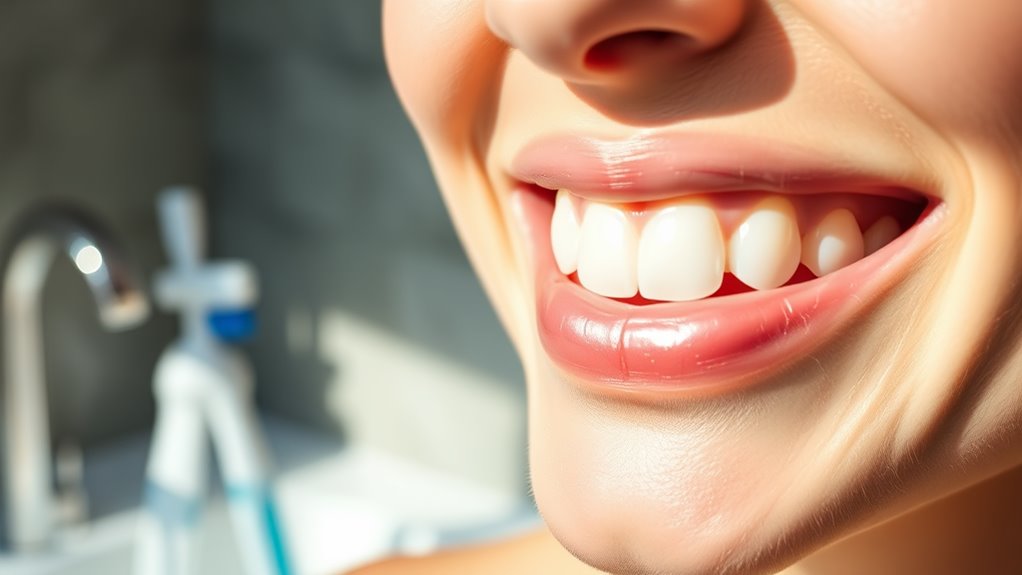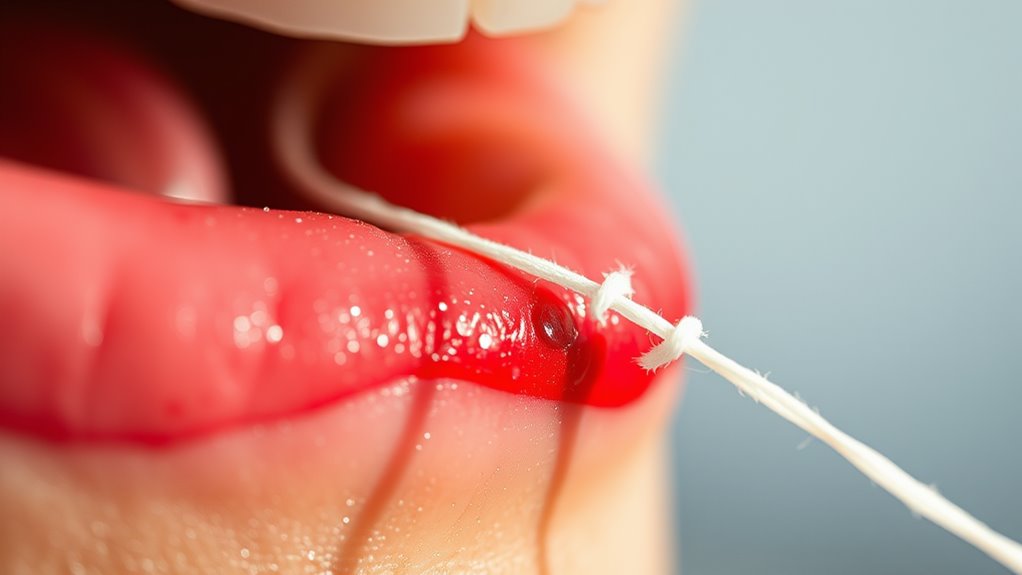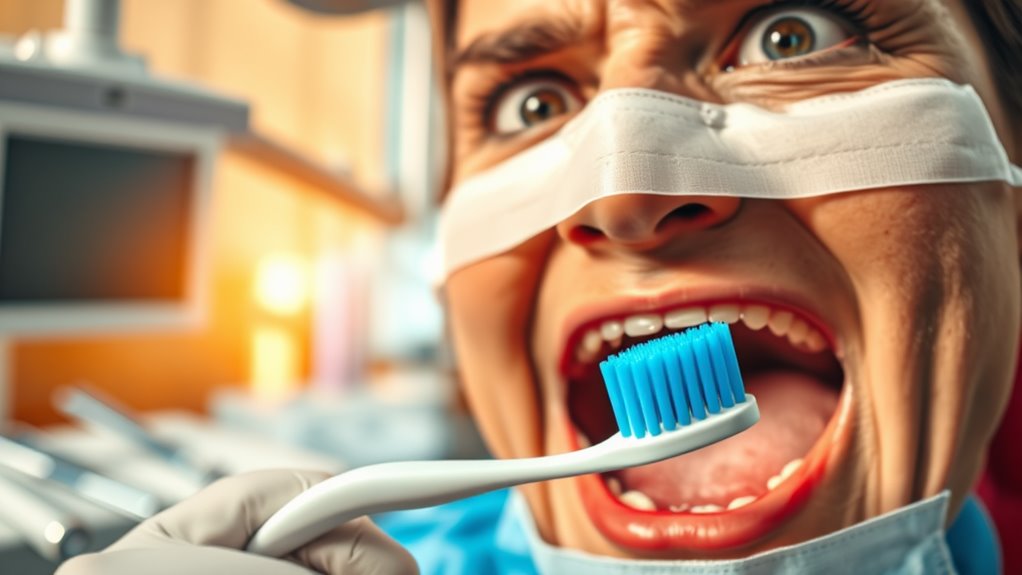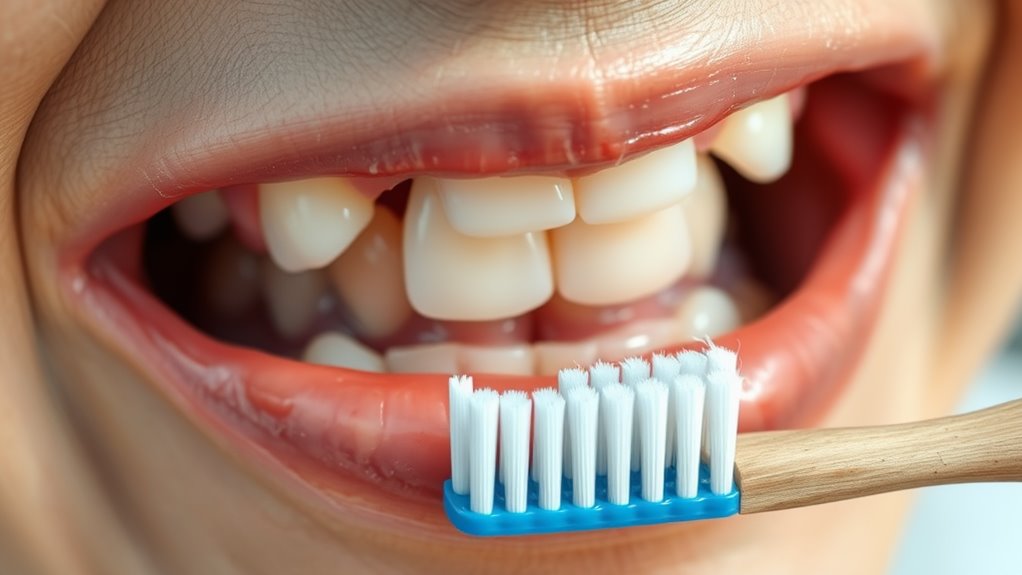These 3 Habits Saved My Gums From Receding Further
To save your gums from receding further, focus on these three habits. First, maintain a consistent oral hygiene routine by brushing twice a day and flossing daily. Second, eat a nutrient-rich diet with vitamin C, omega-3 fatty acids, and calcium to support gum health. Finally, schedule regular dental check-ups for professional cleanings and early detection of gum issues. These habits can make a significant difference in your oral health, and there’s more to discover about gum care.
Consistent Oral Hygiene Routine
To prevent receding gums, maintaining a consistent oral hygiene routine is essential.
Brush your teeth twice a day and floss daily to remove plaque and food particles.
Use an antimicrobial mouthwash to reduce bacteria that cause gum disease.
Regular dental check-ups will help catch any issues early, protecting your gums and ensuring your overall oral health remains in optimal condition. Additionally, incorporating tongue cleaning into your routine can significantly enhance your oral hygiene efforts.
Nutrient-Rich Diet
Maintaining a consistent oral hygiene routine lays the foundation for healthy gums, but a nutrient-rich diet can further enhance your gum health. Incorporate vitamins and minerals that support tissue repair and reduce inflammation. Here’s a helpful table on key nutrients to include in your diet:
| Nutrient | Sources |
|---|---|
| Vitamin C | Citrus fruits, strawberries |
| Omega-3 Fatty Acids | Fatty fish, walnuts |
| Calcium | Dairy products, leafy greens |
| Antioxidants | Berries, nuts |
Including sufficient Vitamin C in your diet is essential for protecting gum tissue and overall well-being.
Regular Dental Check-ups
These appointments allow your dentist to identify early signs of gum disease and address any issues before they worsen. Professional cleanings remove plaque buildup that your brushing might miss. Committing to regular visits ensures your oral health stays on track, ultimately safeguarding your gums. Additionally, regular check-ups can help detect hidden dangers such as oral cancer and systemic health complications that may go unnoticed without professional evaluation.




